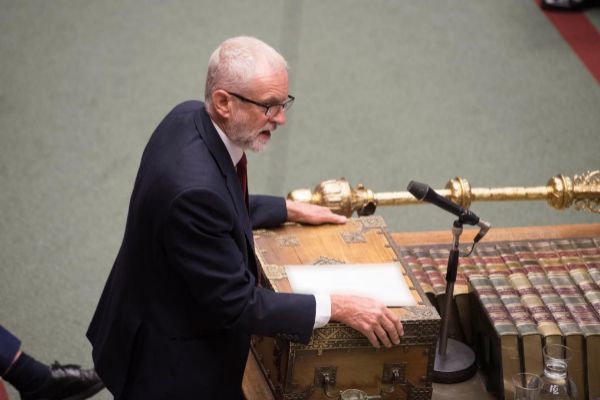To date, Brexit has fulfilled a single function: to divide and confront the British . Of course, he has fulfilled it conscientiously. The current clash between the legislative and executive power is the tip of an iceberg whose fissures extend in all directions. A conservative deputy attested to it on Tuesday at the BBC, after Parliament voted to prevent Boris Johnson from forcing an exit without EU agreement . The deputy told what happened at a meeting that morning between the prime minister and those party mates who were going to vote against the Government. The meeting resulted in mutual recriminations of disloyalty and hypocrisy: Johnson accused the rebels of undermining their negotiating strategy with the EU, of not respecting the authority of who has just been elected leader of the party and of betraying the will of the people. The rebels reproached him for lying about the negotiation with the EU , leading the country into the abyss for political opportunism, having torpedoed the May government for years and now threatening to purge those who acted exactly as he had done.
The result: The United Kingdom looks at a dog-faced election that, whatever happens, will solve very little . The length of this process means that they no longer face opinions but grievances. It is not something exclusive to conservatives - the desperate lack of leadership of Corbyn and the Labor in this crisis also reflects the divisions within the opposition - and there is no end in sight either. Because we should not get illusions as to the effect that a hypothetical second referendum would have. Its celebration would be a lethal blow to trust in the institutions of many British. It would be the largest antipolitic nursery we have seen in Western Europe in many decades.
This is the great paradox of rupturist movements anchored in nationalism. They propose a struggle between a united nation and its external enemies - supported, if any, by a minority of frivolous fifth-columnists - but their real effect is to undermine ties within that community, delve into existing gaps and create new ones. And one wonders if the concrete objectives truly deserved it; if many should not have considered that "would it have been worth it?" that Prufrock repeats melancholy in the well-known work of Eliot . As in the poem, the devastating answer is no.
According to the criteria of The Trust Project
Know more- Boris johnson
- UK
- Brexit
- international
- Columnists
- Opinion
TadeuAval real
Open city A hard Brexit
The British Labyrinth

